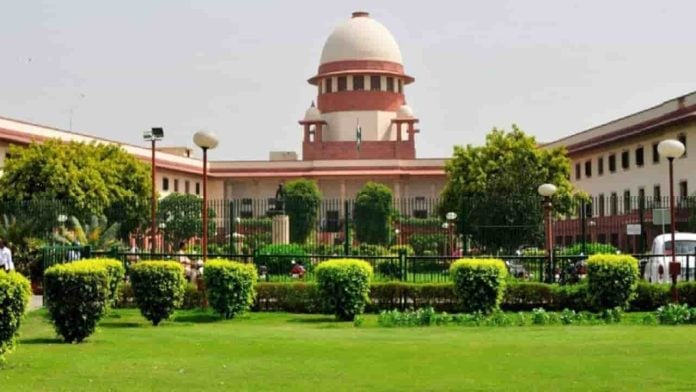The Supreme Court asked the government of Assam on Tuesday to respond on an appeal against a Gauhati High Court verdict, which had upheld the constitutional validity of the Assam Repealing Act.
Justice Ajay Rastogi and Justice C.T. Ravikumar issued notice on the petition, which challenged the decision against converting of existing provincialised Madrasas (Islamic schools) in the state to regular government schools.
As per the petition, the 2020 Act has repealed two laws, which include the Assam Madrassa Education Provincialisation Act, 1995 and the Assam Madrassa Education (Provincialisation of Services of Employees and Reorganisation of Madrassa Educational Institutions) Act, 2018.
Earlier, the Gauhati High Court had dismissed the claim made by the petitioners that the government-funded madrasas were minority institutions, which were established and administered by the minority community.
Also Read: Gujarat High Court quashes FIR registered under Love Jihad Act after both sides agree to settle the matter amicably
The High Court had added that since the entire teaching and non-teaching staff of these educational institutions were government servants, the madrasas in the state could not be established or run by minority institutions.
The then Chief Justice Sudhanshu Dhulia had penned this judgement. Justice Dhulia was later elevated to the Supreme Court.
The plea in the Apex Court has been been filed by one Md Imad Uddin Barbhuiya, through Advocate Adeel Ahmed.
In the High Court,the petitioners had contended that the conversion of minority institutions to government ones by the Act amounted to an invasion of their fundamental rights under Articles 14, 21, 25, 26, 29 and 30 of the Constitution.
The appeal also states that the Assam Madrassa Education (Provincialization) Act, 1995, which was repealed by the 2020 Act, is only limited to the State undertaking to pay the salaries and providing consequential benefits to teaching and non-teaching staff employed in madrasas, as also the administration, management and control of these madrasas.
Also Read: Election freebies: Supreme Court lists matter before 3-Judge Bench, urges early hearing
It is submitted that the repealing Act will, take away the property of the madrasas and also impinge upon their right to provide religious instruction, it is submitted.
It is further contended that the operation of the High Court judgment would result in the discontinuation of the petitioner institutions as madrasas and would prevent them from admitting students for the old courses for this academic year.


